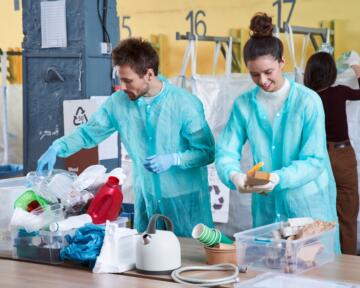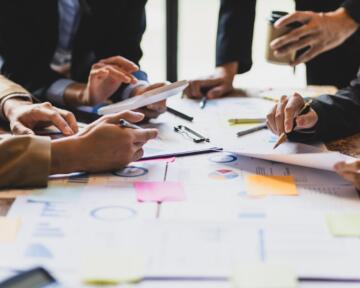Finding New Value
Upcycling is a process that converts waste or products that are no longer used into new, high-quality applications. This often requires a bit of creativity because you need to think outside the box to elevate a (raw) material to a higher level. Upcycling is used, for example, in the renovation of second-hand furniture or toys by finding new applications for them, but the sky is really the limit. Upcycling also offers plenty of opportunities for entrepreneurs. After all, you’re not only making a difference for the environment but you are also creating added value by upgrading a product of lesser value.
A Belgian Cup of Comfort
The Belgian start-up Grounds Up proves that the possibilities of upcyclingUpcycling consists of transforming waste into higher quality products. don’t have to be far-fetched. We all know Belgians love their cup of coffe, with an average of 800 cups consumed per person per year. Since 99% of the ground coffee we use doesn’t end up in our cup but in the bin, you realise our coffee culture has a major impact on the waste mountain: 67,000 tons of coffee grounds per year to be exact. And that’s just in our small country.
Giving Coffee Grounds a New Life
Grounds Up saw potential in all that black gold and went in search of an innovative way to turn it into raw materials. And... they pulled it off! They collect coffee grounds from hospitality venues, sanitise, and dry them. Next the valuable components are extracted that can be used as raw materials for new products. What remains is processed into coffee oil and a compressed ‘cake’ that are given new life in a variety of (semi-)finished products. So what applications are we talking about exactly? The treated coffee grounds, in principle a low-value product, is used for instance in the production of cups, clothing, cosmetics, construction materials, biogas, compost, bioplastics, food, candle wax... At the moment Grounds Up is primarily focusing on a project of reusable coffee cups and 3D printing applications based on upcycled coffee grounds.
Upcycling for Beginners
Of course, upcycling (waste) materials and turning it into a profitable business is easier said than done. This obviously involves a great deal of trial and error, and for many (young) businesses this is far from evident. Grounds Up swears by four central principles in developing their business model and as a start-up in the circular economyThe circular economy is a restorative and regenerative economy. By maintaining the value of the products, materials and resources in the economy through smart product design, repurposing and/or shared use of products, it reduces the extraction of natural resources by using resources already present in the economy. they may prove very useful for you as well:
1. Check the applicable legislation!
Investigate whether the application you wish to develop doesn’t violate any laws. Researching standards in your sector is a critical first step.
2. Map out costs and revenues
Make sure you have a clear overview of your costs and revenues. This is the only way to realistically assess whether or not your idea is economically viable.
3. Create impact
Circular entrepreneurship and upcycling in particular require a positive impact on society and the environment, making it important to transparently and honestly map out your full impact (pros and cons).
4. Is it technically feasible?
Your idea may be brilliant but if it can’t be executed due to a lack of high-tech resources or infrastructure, it’s back to square one. Investigate what is available and whether those techniques suit your business model.
A feasible yet ambitious business plan that maintains a healthy balance between ecology and economy is indispensable. Don’t know where to start? Then check out the toolbox or Go for Circular and test where you are today!




